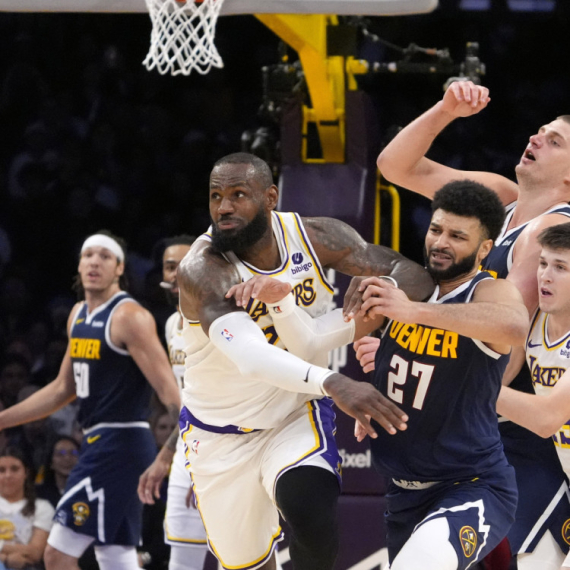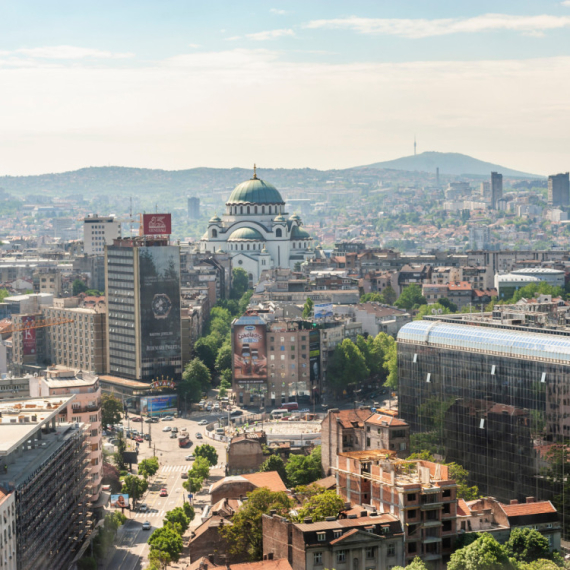"Partition just, but doesn't solve minority problem"
Partition of Kosovo would be just, but would not solve the problem of minorities there, says John Bolton.
Saturday, 29.03.2008.
11:39

Partition of Kosovo would be just, but would not solve the problem of minorities there, says John Bolton. “I think a partition would be just, at least as far as the Serb population on the border with southern Serbia is concerned. It would in any case reflect ethnic and political reality,” the former U.S. ambassador to the UN told Voice of America. "Partition just, but doesn't solve minority problem" “It’s not enough to say that we’ve accepted Kosovo’s secession. If we have—why not accept this kind of partition of Kosovo. However, it won’t solve the problems of Serbs and other minorities that live throughout Kosovo,” he stressed. With regards to the U.S. administration’s decision to send arms to Kosovo, Bolton said that it was “mistaken for any Western country to risk aggravating the very fragile situation in Kosovo, as the weapons could fall into the hands of extremists, who could misuse them.” “Foreign assistance should focus on respecting the human rights of non-Albanians, institution-building and observing the rule of law. I’m really scared that Kosovo could be a failed state and a danger to Europe, but I don’t think it’s inevitable,” the U.S. diplomat underlined. He said that many countries were still hoping that the UN Security Council would reach agreement over the province’s status. “It’s one thing whether we view that case as a precedent or not, but many countries do see Kosovo’s independence as a precedent, and they hope that the five permanent Security Council members will be able to overcome their differences in opinion on that issue. Those states are simply waiting to see whether it will happen, though I don’t think it will,” Bolton ventured. The U.S. diplomat added that it was entirely possible that the question of Kosovo could be considered at the forthcoming meeting of Russian and U.S. Presidents Vladimir Putin and George Bush in Sochi on April 6. “That’s a good chance for both presidents to try and solve certain matters before the end of their mandates. For the U.S., the question of the missile shield in Europe is very important. That’s one of the reasons why I didn’t think it was wise to introduce the added problem of Kosovo independence into U.S.-Russian relations,” he explained. In Bolton’s opinion, Kosovo could become an obstacle to relations between the two countries. “I didn’t understand why Washington recognized Kosovo independence so hurriedly… That issue could have been the subject of further negotiations, while the U.S. and Russia settle bilateral matters,” he said. As regards the Serbian parliamentary elections, Bolton said that it was “important for the Serbian people to bear in mind priorities and… not allow the victimization that many Serbs feel over the way the U.S. and Europe have treated them over Kosovo cloud their decision at the ballot box.” “Serbia’s future should primarily be borne in mind, and that’s what should be voted for,” said the U.S. diplomat.
"Partition just, but doesn't solve minority problem"
“It’s not enough to say that we’ve accepted Kosovo’s secession. If we have—why not accept this kind of partition of Kosovo. However, it won’t solve the problems of Serbs and other minorities that live throughout Kosovo,” he stressed.With regards to the U.S. administration’s decision to send arms to Kosovo, Bolton said that it was “mistaken for any Western country to risk aggravating the very fragile situation in Kosovo, as the weapons could fall into the hands of extremists, who could misuse them.”
“Foreign assistance should focus on respecting the human rights of non-Albanians, institution-building and observing the rule of law. I’m really scared that Kosovo could be a failed state and a danger to Europe, but I don’t think it’s inevitable,” the U.S. diplomat underlined.
He said that many countries were still hoping that the UN Security Council would reach agreement over the province’s status.
“It’s one thing whether we view that case as a precedent or not, but many countries do see Kosovo’s independence as a precedent, and they hope that the five permanent Security Council members will be able to overcome their differences in opinion on that issue. Those states are simply waiting to see whether it will happen, though I don’t think it will,” Bolton ventured.
The U.S. diplomat added that it was entirely possible that the question of Kosovo could be considered at the forthcoming meeting of Russian and U.S. Presidents Vladimir Putin and George Bush in Sochi on April 6.
“That’s a good chance for both presidents to try and solve certain matters before the end of their mandates. For the U.S., the question of the missile shield in Europe is very important. That’s one of the reasons why I didn’t think it was wise to introduce the added problem of Kosovo independence into U.S.-Russian relations,” he explained.
In Bolton’s opinion, Kosovo could become an obstacle to relations between the two countries.
“I didn’t understand why Washington recognized Kosovo independence so hurriedly… That issue could have been the subject of further negotiations, while the U.S. and Russia settle bilateral matters,” he said.
As regards the Serbian parliamentary elections, Bolton said that it was “important for the Serbian people to bear in mind priorities and… not allow the victimization that many Serbs feel over the way the U.S. and Europe have treated them over Kosovo cloud their decision at the ballot box.”
“Serbia’s future should primarily be borne in mind, and that’s what should be voted for,” said the U.S. diplomat.


































Komentari 15
Pogledaj komentare